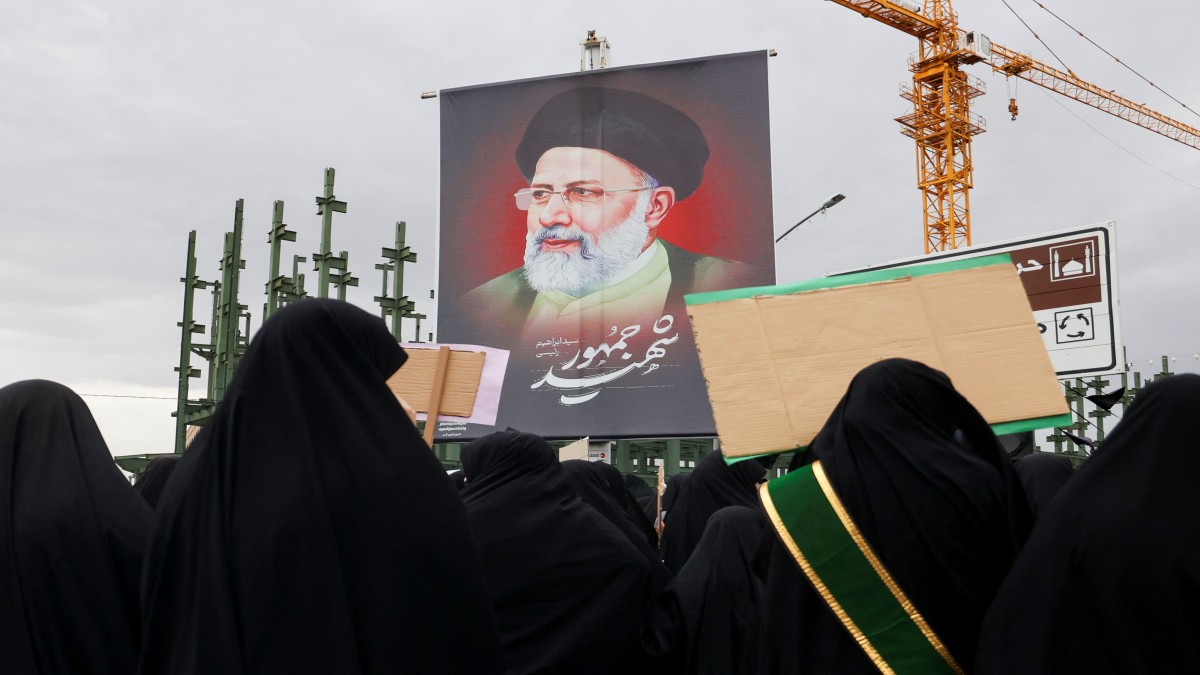The accidental death of Iranian President Ebrahim Raisi in a helicopter crash raised multiple questions and caused unexpected worries in Iran, in the Persian Gulf, in West Asia, and even in South Asia.
The death of Raisi in the midst of the ravaging Israel-Hamas war, attacks on commercial shipping in the Red Sea, and the worsening war situation in Ukraine led to instant speculation that it could have been an orchestrated crash and, if proven, could lead to an unprecedented escalation of the conflict in West Asia. Israel is believed to have assassinated Iranian Revolutionary Guard Core commanders and Iranian nuclear scientists and cyber-attacked Iran’s nuclear facilities.
On the other side, Iran is known to have been the principal sponsor of Hamas in Israel, Hezbollah in Lebanon, and Houthi rebels in Yemen. Thus, the death of President Raisi in a helicopter crash intuitively raised suspicion of a covert foreign hand. The way Israel and its Western allies, including the United States, neutralised hundreds of Iranian missiles launched against Israel by Iran in recent times made people believe that the Iranian President could have been the victim of foreign operations.
However, the Iranian media has widely reported that the helicopter crash resulted from inclement weather, and both the US and Israel have openly denied any role in the death of the Iranian President, and consequently, the wild conspiracy theories have been put to rest. Nonetheless, there are repercussions of this unfortunate death of a president for Iran, its neighbourhood, and the larger West Asian region. Foreign policy pundits have already begun analysing and forecasting what may happen in Iran’s domestic politics and how it can impact the on-going regional conflict.
For the Iranian government and people, the tragic and untimely death of the President has come about at a time when Iran was in the process of providing full-throated support to the Palestinian cause, risking the negative consequences of engaging Israel and the US in region-wide conflict. The “resistance” forces, as Tehran would describe them, not only confronted Israel in Gaza, the West Bank, and other parts of Israel but also along Israel’s border with Lebanon and on waters in the Red Sea. Passing away a top leader and the foreign minister in the middle of a deadly international conflict can be perturbing for the country.
Impact Shorts
More ShortsSearching for a new leader to replace Raisi is not easy because of the suddenness of the event, but Iran’s ultimate political power and national security decision-making authority reside with Ayatollah Ali Khamenei, and whoever wins the presidential election now scheduled for June 28 will have to abide by the order and direction of the Supreme Authority. There are optimists in the Iranian political elite and common masses who may desire a moderate leader to emerge who can bring about reforms within Iran, try to end military adventures abroad, and negotiate deals with the US to end Iran’s isolation in global affairs. They may prefer a leader like Muhammad Khatami, who called for a dialogue among civilisations and sought to end Iran’s isolation to kick-start its economic growth.
But there are hardliners who wish to have a new leader who can maintain Iran’s ability to withstand Western sanctions, punish Israel, befriend Arab countries like Saudi Arabia, reach out to both Pakistan and India, enhance closer strategic ties with Russia and China, protect its strategic autonomy, and safeguard its nuclear installations. They would prefer a Mahmoud Ahmadinejad type of personality in view of the prevailing geopolitical environment in the region.
The most likely scenario is that Iranian Supreme Leader Ayatollah Ali Khamenei will not allow any reformist or moderate candidate to contest the presidential election. The next elected president will most likely have the Ayatollah’s blessings and backing. Supreme Leader Khamenei has not given any indications that he would back away from the current Iranian policy towards the region. On the contrary, there are clear signals that Iran’s policy towards Hamas, Hezbollah, Houthis, and Israel will remain the same, or may be more of the same, post-Raisi era in Iranian foreign policy. Hints are many. For instance, Hamas, Houthi, and Hezbollah leaders attended the funeral ceremony of Raisi. Ayatollah Ali Khamenei spoke with them, and the government allowed the local mourners to carry posters saying “death to Israel”.
The death of Iran’s president about a week after India and Iran signed a ten-year agreement on Chabahar Port has raised concerns over the speedier implementation of the agreement. After all, it took several years and numerous negotiations for the two countries to arrive at an agreement. Iran is a crucial link in India’s international connectivity ventures. Indian diplomacy has succeeded in maintaining cordial ties with Iran in the face of hurdles arising out of US sanctions, India’s close partnership with Israel, and Iran’s emerging friendship with Pakistan. India also navigated successfully through the regional cold war between Saudi Arabia and Iran. India aspires to achieve success in the International North-South Transport Corridor Project, where Iran is a crucial pivot, and in the India-Middle East-Europe Corridor proposal, where Israel is also a connecting link. Both are crucial projects that can elevate India’s economic profile and commercial connectivity in a larger region.
Keeping this national interest in mind, the Indian government promptly took steps and condoled the tragic death of President Raisi. New Delhi declared a national day of mourning, the Indian national flag flew half-mast, and the Vice President of India went to Tehran to attend the funeral and pay tribute. India hopes to continue its constructive ties with Iran both bilaterally and in multilateral forums, such as the Shanghai Cooperation Organisation (SCO) and BRICS.
The writer is founder chairperson of Kalinga Institute Indo-Pacific Studies and former Professor at JNU. Views expressed in the above piece are personal and solely those of the author. They do not necessarily reflect Firstpost’s views.
)